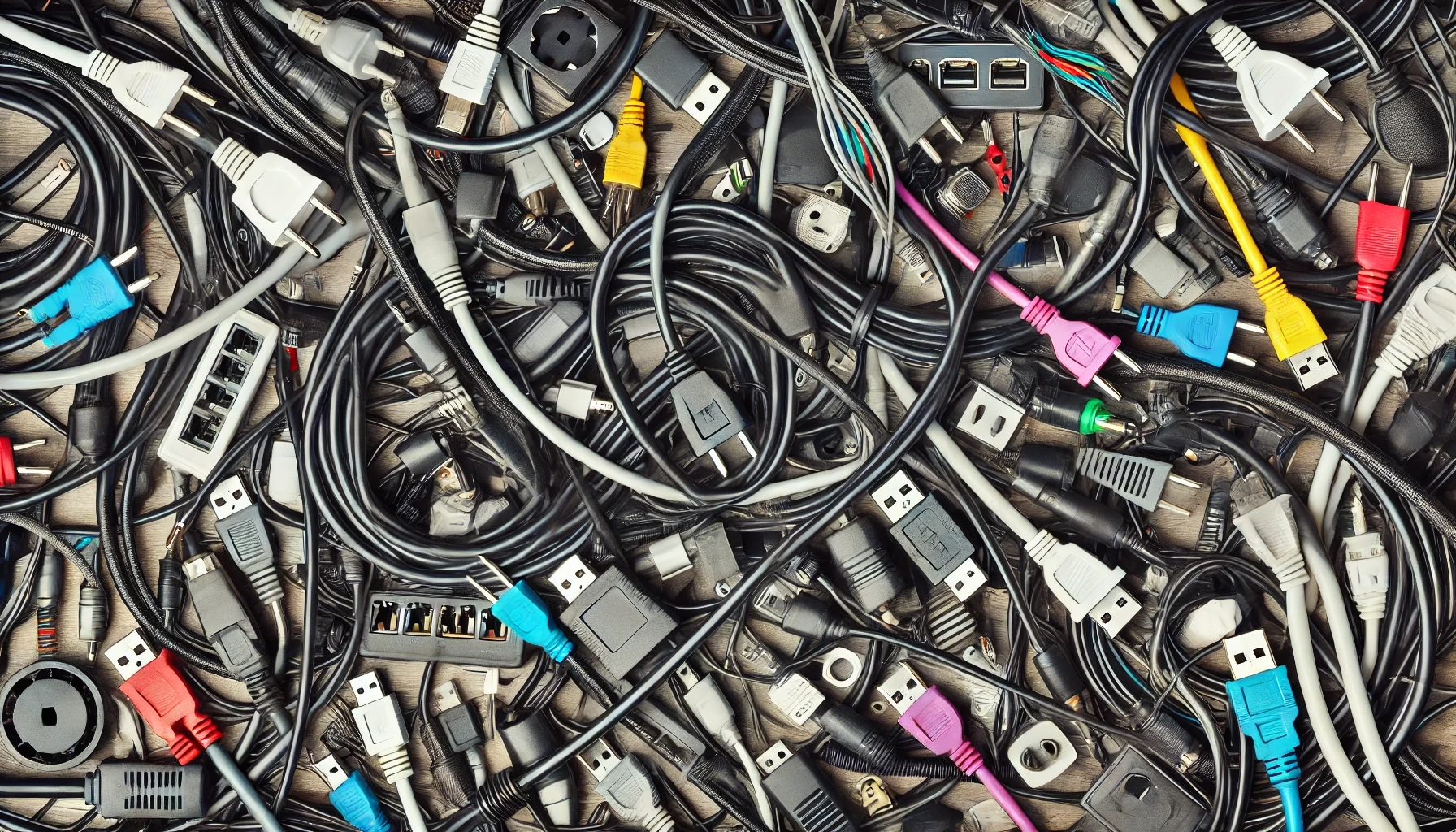Cable Management: Organize and Conceal Cords for a Clean Workspace
Picture this: you sit down at your desk, ready to tackle the day, but instead of feeling inspired, you’re greeted by a tangled mess of cords snaking across your workspace. Sound familiar? Cable management is the unsung hero of a clean and functional office. By organizing and concealing cords, you can create a workspace that’s not only visually appealing but also safer and more efficient. In this guide, we’ll explore the benefits of cable management and share practical tips to help you tame the cord chaos.
What is Cable Management?
Cable management refers to the process of organizing and securing cords and cables in your workspace. This includes everything from bundling cords together to using tools like cable ties, clips, and sleeves to keep them out of sight. The goal is to create a clutter-free environment that enhances both functionality and aesthetics.
Why Cable Management Matters
A cluttered workspace can be more than just an eyesore—it can also be a safety hazard and a productivity killer. According to a study by the National Fire Protection Association, poorly managed cables are a leading cause of workplace fires (NFPA, 2020). Additionally, a study in the Journal of Environmental Psychology found that clutter can increase stress and reduce focus (Vohs et al., 2017). Cable management helps mitigate these risks while creating a more pleasant and efficient workspace.

Benefits of Cable Management
1. Improved Safety
Loose cords can pose tripping hazards and increase the risk of electrical fires. Proper cable management keeps cords secure and out of the way, reducing these risks.
2. Enhanced Productivity
A clutter-free workspace helps you stay focused and organized. No more wasting time untangling cords or searching for the right cable!
3. Better Aesthetics
Let’s face it—cables are ugly. Concealing them creates a cleaner, more professional-looking workspace that you’ll be proud to show off.
4. Easier Maintenance
When cords are neatly organized, it’s easier to add, remove, or replace devices without creating a mess.

Essential Cable Management Tools
Ready to tackle your cable clutter? Here are some must-have tools for effective cable management:
1. Cable Ties and Velcro Straps
Use these to bundle cords together and keep them organized. Velcro straps are reusable and adjustable, making them a versatile option.
2. Cable Clips and Clamps
Attach these to your desk or wall to secure cords in place and prevent them from slipping or tangling.
3. Cable Sleeves and Raceways
These tools conceal multiple cords in a single sleeve or channel, creating a clean and streamlined look.
4. Cable Management Boxes
Store power strips and excess cords in a cable management box to keep them out of sight and reduce clutter.
5. Under-Desk Trays
Mount a tray underneath your desk to hold power strips and cords, freeing up valuable desk space.

How to Organize Your Cables
Follow these steps to achieve a clean and organized workspace:
1. Assess Your Setup
Identify all the cords in your workspace and determine which ones can be bundled or concealed. Group cords by device or purpose (e.g., computer, monitor, printer).
2. Use Cable Ties or Velcro Straps
Bundle cords together to reduce clutter. Leave a little slack to avoid straining the cables.
3. Secure Cords with Clips or Clamps
Attach cords to the edge of your desk or wall to keep them in place and prevent tangling.
4. Conceal Cords with Sleeves or Raceways
Run cords through sleeves or raceways to hide them from view. This is especially useful for cords that run along the floor or wall.
5. Store Excess Cords in a Management Box
Place power strips and extra cords in a cable management box to keep them organized and out of sight.

Tips for Maintaining Cable Management
1. Label Your Cords
Use labels or color-coded tags to identify cords, making it easier to troubleshoot or rearrange your setup.
2. Regularly Check for Wear and Tear
Inspect your cords periodically for damage and replace any that are frayed or worn out.
3. Keep a Spare Set of Tools
Have extra cable ties, clips, and sleeves on hand for quick fixes or new additions to your setup.
4. Plan for Future Upgrades
Leave some slack in your cords and plan your layout to accommodate new devices or changes to your workspace.
Conclusion
Cable management might not be the most glamorous part of setting up your workspace, but it’s one of the most impactful. By organizing and concealing cords, you can create a cleaner, safer, and more efficient workspace that boosts productivity and reduces stress. Whether you’re working from home or in a corporate office, taking the time to manage your cables is a small effort that yields big rewards.
Ready to transform your workspace? Start organizing your cables today and enjoy the benefits of a tidy and functional office!
References
- National Fire Protection Association (NFPA). (2020). Electrical Safety in the Workplace. Link
- Vohs, K. D., Redden, J. P., & Rahinel, R. (2017). Physical order produces healthy choices, generosity, and conventionality, whereas disorder produces creativity. Journal of Environmental Psychology, 49, 1-8. Link







